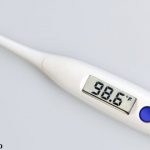In addition to commonly used social networks, patients connect with one another in other online groups. Example: PatientsLikeMe was conceived in 1998, when Stephen Heywood was diagnosed with amyotrophic lateral sclerosis (ALS) at age 29. His brothers, Jamie and Ben, wanted to learn more about the condition to help Stephen. In effect, they became citizen scientists who sought to aggregate the real-world experiences of patients with the disease from across the world. Since its 2005 launch, PatientsLikeMe has connected people living with ALS and expanded to include other conditions and is now among the world’s largest patient community and digital health management sites.
This platform and others allow patients to share information, learn how to manage their condition more effectively, gain insights into disease and symptom management and discover tools for self-management of disease to improve quality of life. Additionally, the PatientsLikeMe portal includes approximately 36,000 patients who self-identify as having lupus, and studies have been conducted to learn from the self-reported patient experience and add to the rheumatology literature on lupus and other rheumatic diseases.2
Dr. Hausmann noted that research studies may involve invasive &/or time-consuming procedures that can dissuade some patients from participating unless they feel they are contributing to a greater good.
Data Collection
In the next portion of the talk, Dr. Hausmann discussed several technology-driven projects that he has worked on in recent years.
One such project is Feverprints, which seeks to better understand the association of fever patterns with various conditions and identify ranges of normal and febrile temperatures across individuals. smartphone app that asks individuals to measure and record their temperature with a thermometer, and then input the data along with responses to surveys about their health. In collecting more than 5,000 temperature readings, Dr. Hausmann and colleagues were able to show that crowd-sourced data on average normal and febrile temperatures were similar to those seen in studies performed under controlled conditions.3
From this experience, Dr. Hausmann explained that he learned how passive—rather than active—data gathering can be a valuable research method. The team also realized that working with established research platforms and having internal software development can be an advantage to performing high quality research studies.
Dr. Hausmann also discussed the vRheum app, which is designed to capture symptoms and patient-reported outcome measures for pediatric patients and their parents. A study is currently underway to evaluate how this app is being used by patients and their families. In the future, Dr. Hausmann hopes to provide data from the app to rheumatologists that may improve care by measuring medication adherence and integrating its data collection with that being done via the CARRA registry.



